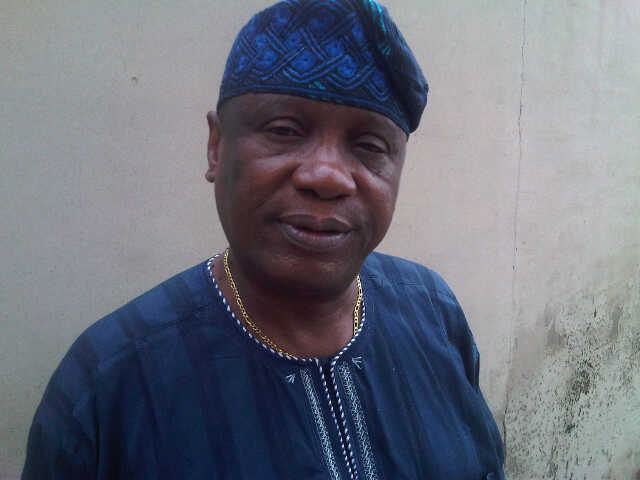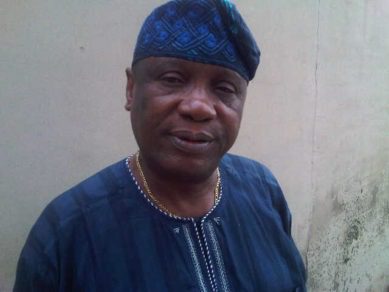Democracy & Governance
Making a scapegoat of corruption -By Eric Teniola


Eric Teniola
In seizing power from Gen. Yakubu Gowon, the then military ruler, Gen. Murtala Ramat Muhammed told the nation on July 30, 1975 that”, This government will not tolerate indiscipline. The government will not condone abuse of office.” He kept his word.
He retired over 10,000 public servants including top military officers. He set up a committee that reviewed the performances of all public officers. At the end of the exercise, only two ministers were found not guilty, Alhaji Shehu Shagari and Shettima Alli Mongunu.
At that time, Nigeria had 12 state governors: Benue-Plateau, Chief Superintendent of Police Joseph Gomwalk; East Central, Ukpabi Asika; Kano, Deputy Police Commissioner Audu Bako; Kwara, Brig. David Bamigboye; Lagos, Brig. Mobolaji Johnson; Mid-West, Brig. Samuel Ogbemudia; North Central, Brig. Abba Kyari; North-East, Brig. Musa Usman (Air Force); North-West, Police Superintendent Usman Faruk; Rivers, Lieutenant Alfred Diete-Spiff (Navy); South-East, Brig. Uduokaha Jacob Esuene (Air Force), and West, Brig. Christopher Oluwole Rotimi.
Only two of the governors, Rotimi and Johnson, were cleared of corruption. Quite a number of public servants, ministers and governors had their assets seized. No one was prosecuted for corruption.
In taking over power from Shagari, the then Maj. Gen. Muhammadu Buhari told the nation on January 1, 1984 that, “The change became necessary in order to put an end to the serious economic predicament and the crisis of confidence now afflicting our nation.” He said, “The situation could have been saved if the legislators were alive to their constitutional responsibilities. Instead, the legislators were pre-occupied with determining their salary scales, fringe benefits and unnecessary foreign travels, etc, which took no account of the state of the economy and the welfare of the people they represented.”
To mark his 100 days in office on April 7, 1984, Buhari further told the nation that “we took over from the defunct civilian administration at the federal and state levels a financial situation of vast indebtedness. In fact, the depth and seriousness of the financial predicament of the state governments and, by implication, of the nation has become clearer and clearer, day by day. The Federal Government had to assist state governments recently with a sum of over N600m as loan to enable them pay all arrears of wages and salaries before the end of April 1984.”
At that time, Buhari was 42 and still vibrant, resounding and resonant. As a military officer with regimental discipline, he turned to decrees to administer the nation.
They are (1.) The Constitution and Modification Decree 1 of 1984, which he signed into law on February 9, 1984; (2.) The State Security Detention of Persons Decree of 1984, which he signed into law on February 9, 1984; (3.) The Federal Military Government Supremacy and Enforcement of Power of 1984 which is known as Decree 13, which he signed into law on May 13, 1984; (4) the Exchange Control (anti-sabotage) Decree 1984 otherwise known as Decree 7, which he signed into law on April 5, 1984; (5) the Counterfeit Currency Special Provision Decree 1984, otherwise known as Decree 22, which he signed into law on May 17, 1984; (6) the Public Officers Protection Against False Accusations Decree 1984, which he signed on April 17 1984; (7) the Robbery And Firearms Special Provision Decree 1984, which set up the Special Tribunal for the trial of armed robbery and special cases; (8) Political Parties (Dissolution and Prohibition) Decree, 1984, which provided for the dissolution and prohibition of political parties and other similar organisations and forfeiture, disposal and discharge of the assets and liabilities of the dissolved political parties and state creation movements and, (9) the Banking (Freezing of Accounts) Decree 1984, which empowered the Head of the Federal Military Government, where he suspected or believed that any person had been involved in certain offences, including bribery and abuse of office, to issue or cause orders to be issued authorising an investigation into the accounts of such persons and restricting the operation of such accounts on such conditions as may be prescribed in the order. He also set up the Recovery of Public Special Military Tribunals (amended) Decree 8 of 1984 which he signed into law on April 5, 1984.
In setting up the Decree 8, Buhari created in addition, tribunals in five zones of the country. The Enugu Zone made up of Anambra, Imo, Cross Rivers and Rivers states was headed by Air Commodore M. Muhammed. Other members included Lt. Col. V.L. Malu, Navy Captain T.U. Odibo, Wing- Commander R.B. Suara and Mr. Justice A. Idoko.
For the Jos Zone which comprised Plateau, Bauchi, Gongola, Benue and Borno states. Brig. Peter Ademokhai was named as the Chairman. Other members of the tribunal included Lt. Col. I.O. Adebunmi, Navy Captain Jubrin O. Ayinla, Wing Commander S.O. Cole and Mr. Justice J.D. Ogundere.
For Kaduna Zone, made up of Kaduna, Kano, Niger, Sokoto states and the Federal Capital Territory, Navy Captain M.A. Elegbede was named the chairman. Other members were Lt. Col. I.D. Gumel, Lt. Col. M. Maina, Wing Commander J.P. Obakpolor and Mr. Justice P.K. Nwokedi.
For Ibadan Zone made up of Oyo, Ogun, Ondo, Bendel and Kwara states, Brig. C.B. Ndiomu was named as the Chairman. Other members were Commodore I.J. Ogohi, Lt. Col. Yohanna Madaki, Wing Commanders C.C. Ohadumere and Mr. Justice S.U. Minjibir.
As for the Lagos Zone made up of Lagos State, Brig. P.U. Omu was named chairman. Other members were Brig. M.M. Nasarawa, Navy Captain J.N. Kanu, Lt. Col. Yinka Martins and Mr. Justice T.A. Oyeyipo.
Buhari at that time was young, vibrant and patriotically adventurous. On August 7, 1985, he was toppled at 6.00 a.m. via an announcement by the then Commander of the Armoured Corps of the Nigerian Army, Brigadier Joshua Dongoyaro.
On that day Maj. Gen. Ibrahim Babangida took over as the head of state.
Buhari was detained for three years thereafter.
He was first detained in a government house at Alagbaka in Akure, where he became my neighbour before he was eventually transferred to Benin City.
On November 24, 1993, Babangida signed the Forfeiture of Assets (release of forfeited assets Decree 24) and returned some of the forfeited properties to former governors under Gowon including Faruk and his wife, Ogbemudia, Bamigboye, Diete-spiff and Chief Edwin Clarke who served as Gowon’s Minister of Information. The Decree rubbished the anti-corruption crusade of Gen. Murtala Muhammed.
In taking over on May 29, 1999 from Gen. Abdusalami Abubakar, President Olusegun Obasanjo set up three panels to probe the administration of the previous government. The three panels were headed by Dr. Christopher Kolade, Oluwole Rotimi and Alhaji Igudu Inua. No one has so far been prosecuted. But it was understood that the Kolade panel recovered some money to the coffers of the Federal Government.
Now, Buhari is back in power. Fully experienced and fully cautious. At 72, having passed through many ordeals, he is now more scrupulous and punctilious. In the last few weeks, the country has been treated with stories of massive looting by the Goodluck Jonathan’s government.
It appears it is the misfortune of Buhari to head a corrective regime instead of a regime of continuity. Things have to be so bad that he has to step in to remedy a worse situation. That is the cross he has to carry. To his credit, and in the words of President Barak Obama, “he is a man of integrity”- a befitting testimonial that is very rare among leaders of today’s world.
No more decrees to govern this time. No more Supreme Military Council to guide him. He has to rely on his conscience and his God. The constitution has bestowed on him the sole authority to shape our lives about 180 million of us-all blacks. In the immediate past, he has had to reconstruct his government and recover the loot from the officials of the previous government.
If he recovers the loot without prosecution, he is bound to lose a lot of goodwill. If he prosecutes a few, he will be judged selective. Even if he prosecutes at all, he should be prepared to face the consequences for corruption has a way of fighting back. Buhari has a big burden on his shoulder to carry.
With eminent and close friends like Mohammed Magoro, Maj. Gen. Paul Tarfa (retd.), Alhaji Mamman Daura, Alhaji Ahmed Joda, Lt. Gen. Alani Ipoola Akinrinade (retd.), Alhaji Gidado Idris, the only Secretary to the Government of the Federation who served two Heads of States, Alhaji Hayatudeen, Pastor Tunde Bakare, Prince Tony Momoh, Alhaji Lamido Sanusi, the Emir of Kano, Alhaji Ismaila Issa Funtua, his in-law, Gen. T.Y. Danjuma, former Inspector-General of Police Ibrahim Coomasie, his classmate, Alhaji Babagana Kingibe, a former SGF, Dr. (Mrs.) Mallia Zayyad, former President Olusegun Obasanjo, Dr. Hakeem Baba Ahmed, Mallam Nasir el-Rufai and others around him, I am sure Buhari will never walk alone.
Teniola, A Former Director At The Presidency, Stays In Lagos.


















